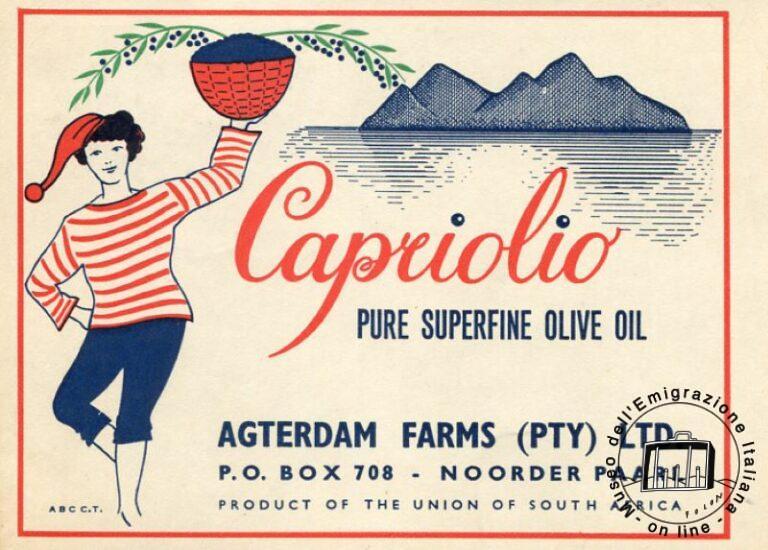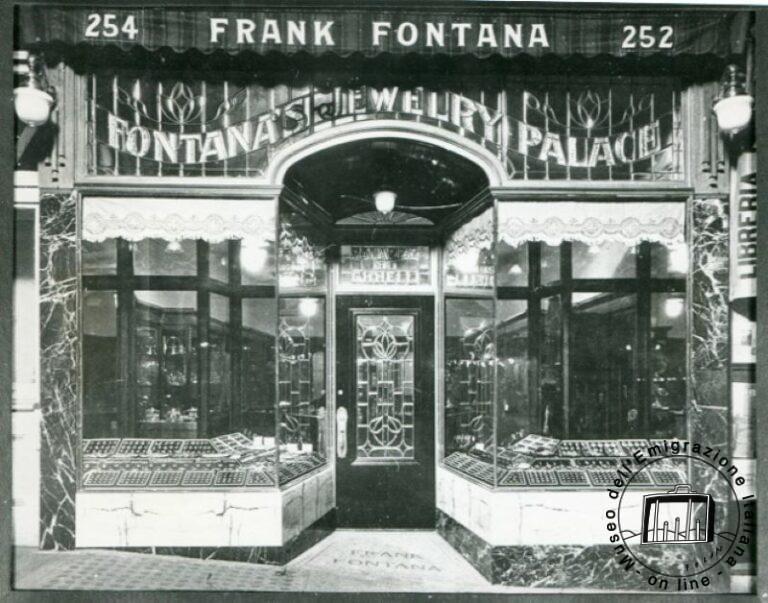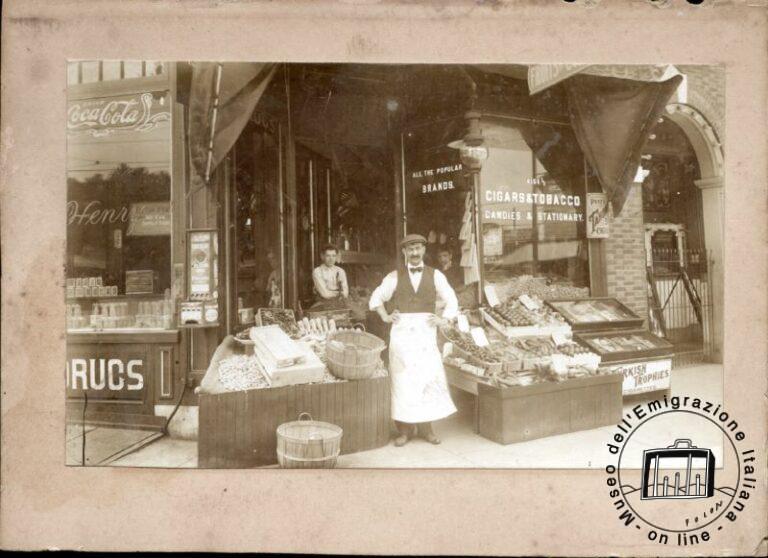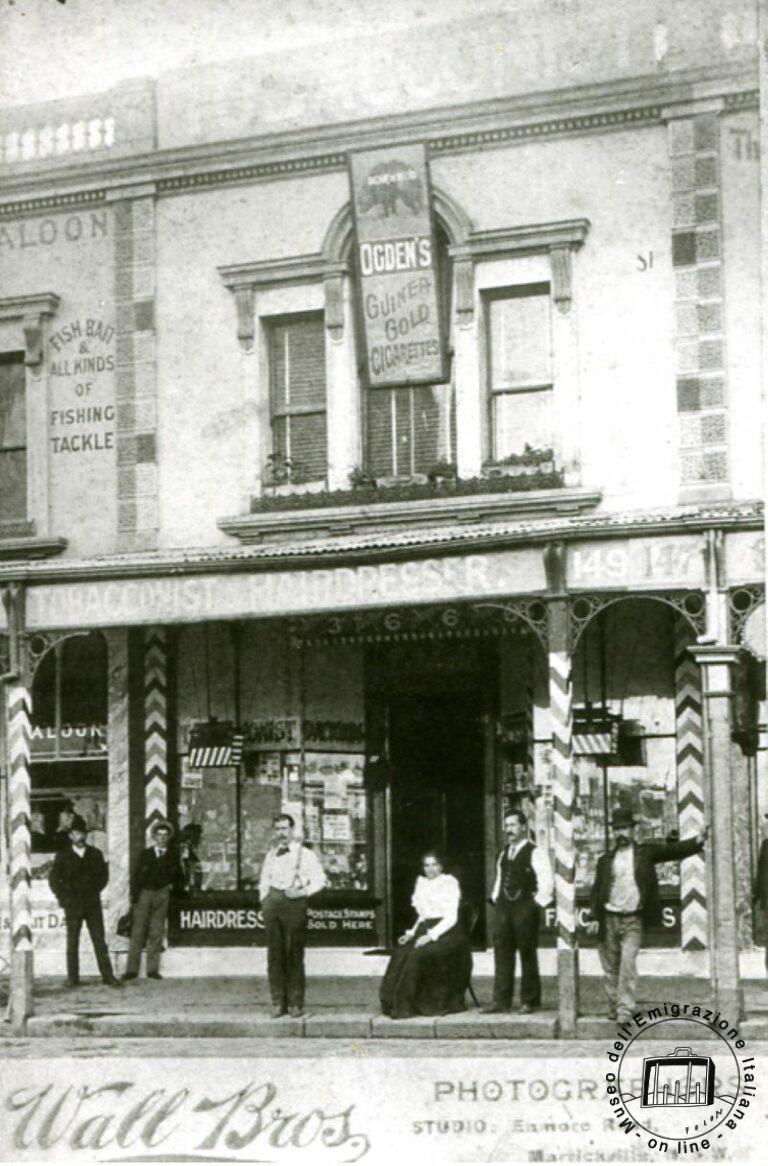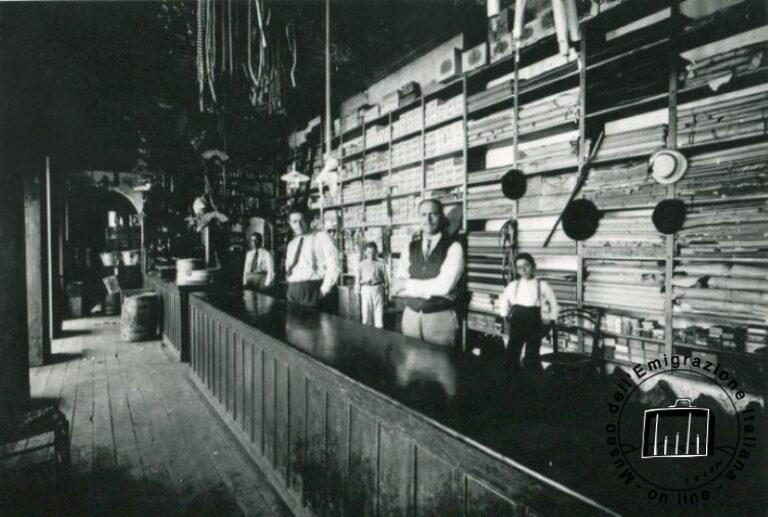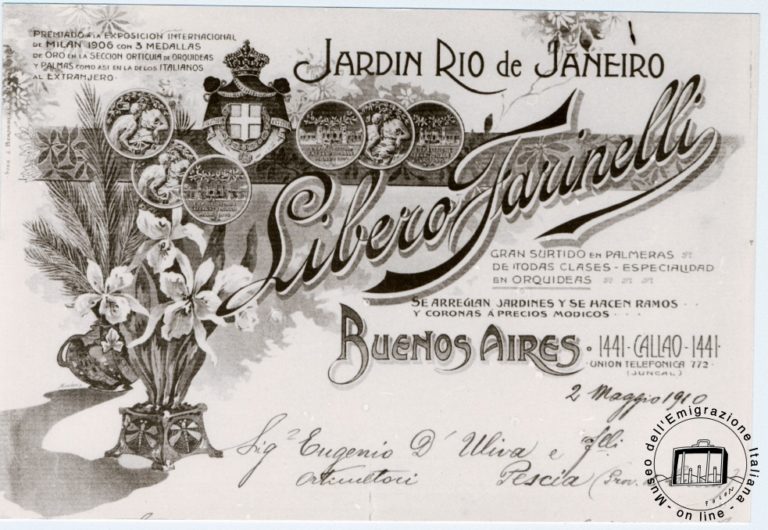For emigrants who engaged in trade, the beginnings were much the same: after arriving in the new country they worked for a few years as employees of the relatives or friends who had urged and helped them to emigrate. Of course, this initial phase was skipped by those who, already endowed with their own capital, however minimal, began directly in the very small trade. Along this path the family always played a fundamental role not only as the provider of the initial economic means but also, in the case of emigration of the family unit, in whole or in part, with direct involvement in the management of the business.
The first stores were small outlets, mostly in the food sector, and had the Italian community as their initial clientele. In fact, on the windows of many of the stores it was proudly written that they sold authentic Italian products.
For most of the shopkeepers, then, the pinnacle of fortune was reached with the establishment of a business of some scale. Some of these businesses, however, were able to consolidate over time, and several stores turned into mighty manufacturing and processing enterprises for soil and livestock products or into large international distribution enterprises.
The fact that these new industrialists came from the commercial sectors benefited them because of their prior knowledge of the domestic market situation, sources of supply and possibilities for easier access to credit.


